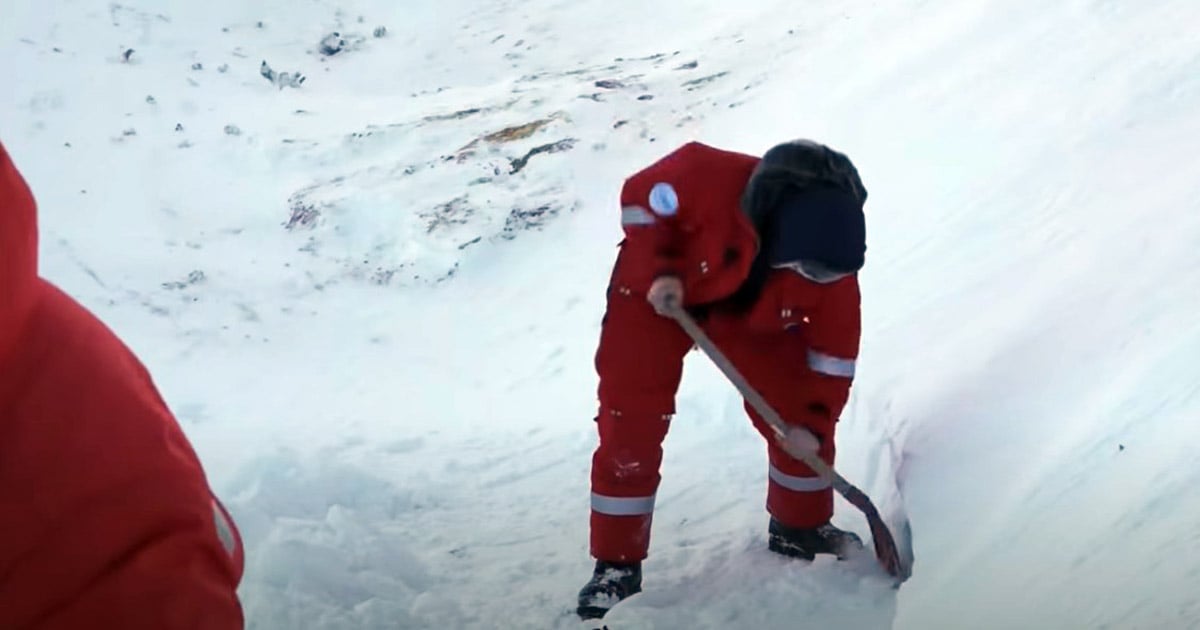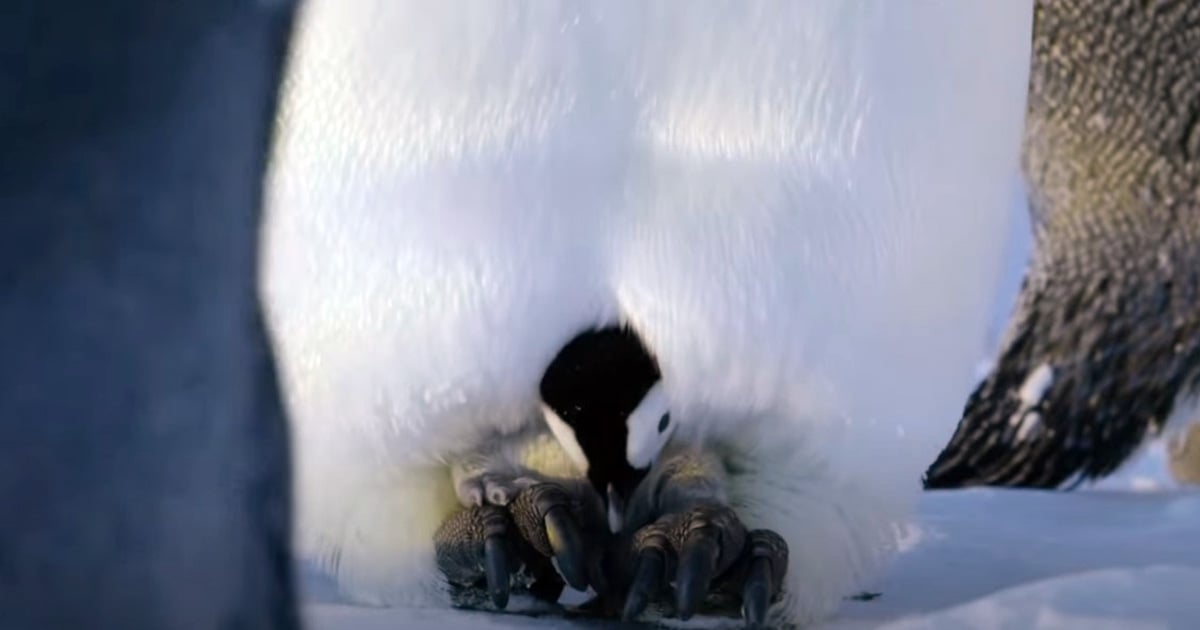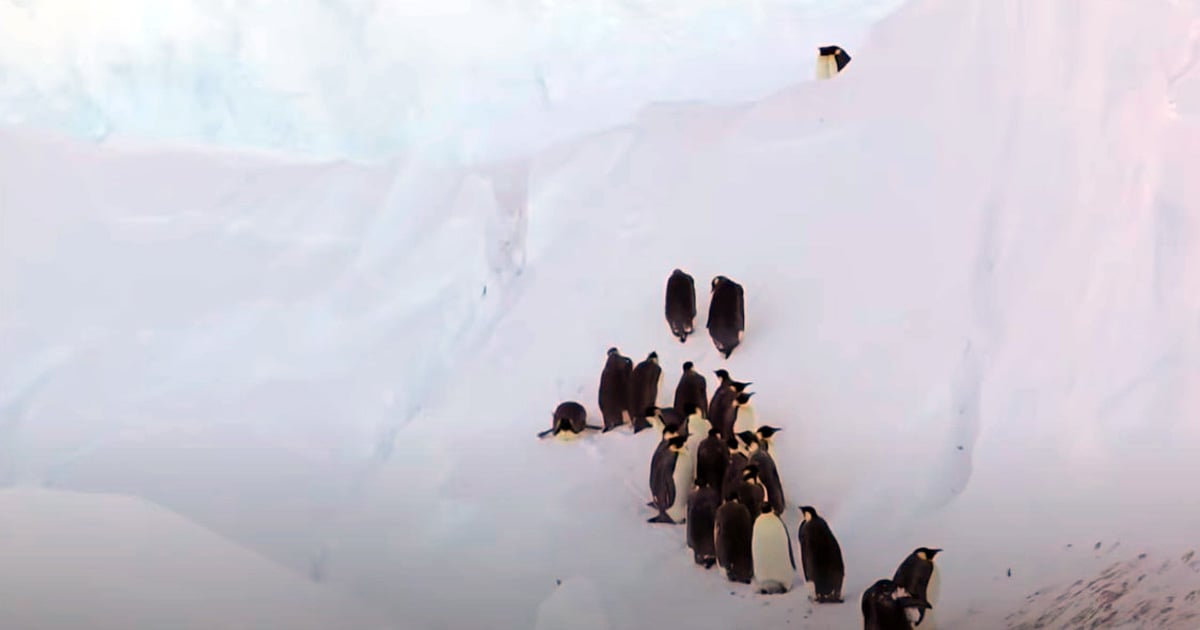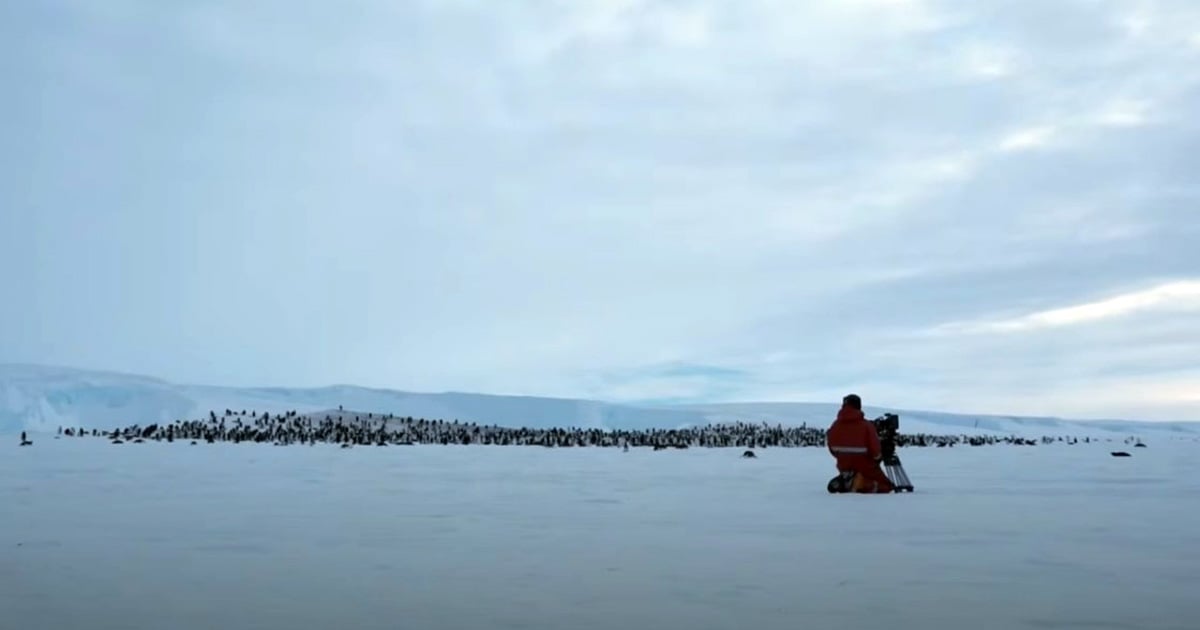Film crew breaks “no interference” rule after seeing desperate baby penguins that needed help

In 2018, the BBC film crew was filming David Attenborough’s BBC series Dynasties in Antarctica. While the main rule of filming in nature is not to interfere with the natural course of events, the crew had to step out, and save more than 50 penguins who were trapped in a ravine.

The video shows filmmakers building stairs for penguins and the ultimate rescue of little fellows in tuxedos.
In situations like this, filmmakers are discouraged from intervening while trying to capture some events with their cameras
The rule of not interfering is the most important rule for humans who spend time with their cameras in the wildlife. Taking part in natural events is considered dangerous because it changes the natural cycle.

David Attenborough himself admitted that what his team had done was very rare and called it an “unprecedented move.” Experts, however, claim that death is a natural process and getting attached to cute baby penguins shouldn’t allow you to act upon your feelings.

On the other hand, we are more than happy that penguins were saved
Yes, we understand both sides, and the internet has defended Attenborough and his team. In the animal kingdom, death is an inevitable step of the evolution process and an essential component of the food chain.

So, how did it all happen? Why did the crew who knew all the rules decided to break them?
Doug Allen, the crew’s cameraman told The Guardian that their decision to interfere was based on what they were seeing at the time
“Penguins were trapped, and they would die,” said Allen. He also added that what they did wasn’t a danger, neither for them nor for the animals.

The dynamics of the natural system were intact, and they weren’t depriving any other animals of food.
The BBC team has merely created an escape route for penguins
Birds were trapped in a ravine, and the gully was very deep.

There was no out for them, so the team took their shovels, entered the gully, and started digging. The goal was to dig steps into one end so that penguins could escape to safety.

Philip Hoare, author, and film-maker said that his team members would upset someone whichever reaction they chose
Hoare also said that he is more than proud of his crew.

Mike Gunton, the executive producer of the series, has also defended the brave men saying that “it was one of few rare situations where it was allowed to act as BBC team did”.
The TV crew endured the very harsh conditions in Antarctica
Believe it or not, the team has spent almost an entire year working in minus-60-degree Celsius temperatures while following the colony of emperor penguins in Atka Bay.

Will Lawson, the director of the series, said that “no other animal would benefit from the demise of those penguins”, and that is why they prevented a tragedy.

Almost one million species will face extinction during the next decade
To be in a perfect balance, the Earth’s ecosystem needs all the species that live in it. United Nation’s panel called the Intergovernmental Science-Policy Platform on Biodiversity and Ecosystem Services (IPBES) claims that up to one million plant and animal species face extinction. Alongside climate, another concerning topic is certainly biodiversity.

Whales, dolphins, elephants, sharks, and many other animals are asking for your help. Scientists agree that we mustn’t forget that we are also part of nature. Let’s follow the BBC crew’s example and help while we still can.
Please SHARE this with your friends and family.
Source: BBC Earth; PetaPixel; TheGuardian; CBSNews; SMH; TheConversation; Nature